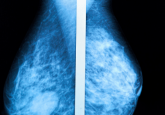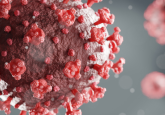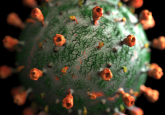The future of mRNA vaccines

They call it LinearDesign: the AI algorithm that can significantly improve the stability and antibody response of current COVID-19 mRNA vaccines.
The AI-powered algorithm (LinearDesign), developed by Chinese multinational technology company Baidu, can design optimized mRNA sequences for vaccines that significantly exceed the stability and antibody responses of current COVID-19 mRNA vaccines.
Now here’s why this algorithm is so revolutionary…
mRNA is particularly fragile and unstable as it is single stranded and prone to degradation. Freezing conditions can, however, prevent degradation. This was an issue during the COVID-19 pandemic, as mRNA COVID-19 vaccines needed to be stored and delivered at freezing temperatures to maintain stability and efficacy. This limited vaccine distribution to areas with poor infrastructure and limited resources in remote or rural communities. By increasing vaccine shelf life and stability, as LinearDesign has demonstrated its ability to do sixfold, global immunization coverage could hugely expand and help more of the population receive lifesaving vaccines.
So how does the AI algorithm work?
LinearDesign utilizes a lattice parsing algorithm, initially developed for natural language processing and continuous speech recognition. Employing this technique to identify optimal mRNA sequences much like determining the most probable sentence amidst a variety of related alternatives, the algorithm analyzed all the possible COVID-19 mRNA vaccine sequence combinations and identified the most stable mRNA structure. Normally, this process “would take 10^616 billion years, but our algorithm designs the most stable mRNA in just 11 minutes,” explained He Zhang, a software engineer at Baidu Research (CA, USA).
LinearDesign can also generate mRNA sequences with more specific and detailed structures than in present vaccines, which increases stability over longer durations both in the vaccine and in the body. In turn, this increased stability induces greater antigen production and therefore greater antibody production as well as stronger immune protection. When testing the algorithm’s performance in COVID-19 vaccines in mice, the novel mRNA sequences generated up to 128 times greater antibody responses.
The future of vaccines?
Not only does LinearDesign offer its potential to revolutionize mRNA vaccines, but it could also aid the design of novel effective cancer treatments where mRNA vaccines are personalized to each patient’s tumor to aid the induction of an immune response. The research also has promising wider applications within mRNA medicine, including in treatments utilizing monoclonal antibodies.
LinearDesign offers a breakthrough that could significantly reduce the time and expenses involved in mRNA vaccine development, as well as improve vaccine efficacy. The researchers at Baidu expect mRNA vaccines to supplant traditional vaccines within the next 10 years. “I think in about five years, probably all the mRNA pharmaceutical industry will be using this algorithm,” noted Liang Huang, the LinearDesign paper co-author, explaining that “mRNA vaccines are much better, except for stability, which we solved”.





